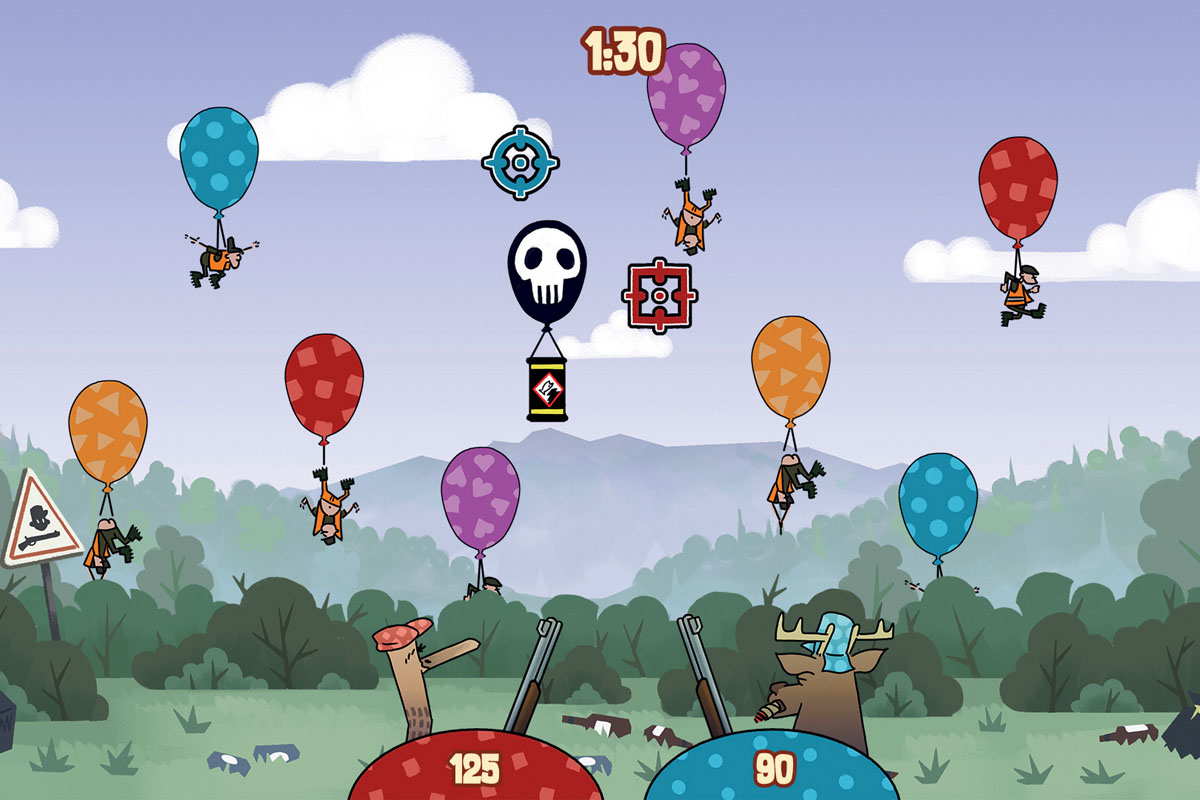[LUM#17] High-tech therapies: treatments and entertainment
Healthcare innovation takes unexpected turns when it moves beyond medication. Using music and games, the EuroMov Digital Health in Motion* research unit is developing cutting-edge therapeutic treatments for movement rehabilitation.
"A king without entertainment is a man full of misery." Pascal's thinking may have inspired the movement science researchers at EuroMov DHM, as several of their innovations combine treatment and entertainment. First and foremost is music, whose benefits for walking and balance inspired the BeatMove smartphone app. "By imposing an external rhythm, music improves the walking of people with Parkinson's disease," explains Benoît Bardy, professor of movement and health sciences. With his team, he is developing software capable of adaptively synchronizing music with walking pace.
In practical terms, patients need to equip themselves with a smartphone and headphones, as well as insoles fitted with motion sensors. "During the first minute of walking, the
algorithmdetects the characteristics of the stride in order to configure the application and select the appropriate song," explains Benoît Bardy. The BeatMove software draws on a database of nearly 600 songs to find the one that matches the right tempo. Since the aim is not to upset the walker, they can choose between five musical genres: pop, rock, classical, variety, and jazz.
Halving the falls
"The great innovation of this algorithm is that it adapts the rhythm of the music to the pace of walking in real time. The app manages a variation of 10 to 20% in cadence to compress or expand the music without it being noticeable to the ear. Then, if the walker's pace changes too much, the app automatically changes tracks," explains Benoît Bardy. The music was selected in collaboration with Ghent University in Belgium to cover a very wide range. "The artificial intelligence used also allows the algorithm to anticipate movement, manage disruptive events such as stepping onto a sidewalk, and manage changes in pace such as climbing stairs," explains the researcher. BeatMove also gradually increases the pace subliminally to reach an optimal speed, calculated for each patient. This acceleration counterbalances the tendency of people with Parkinson's to slow down their walking, often out of caution or fear of falling.
The initial results are spectacular. In 2021, a study of 40 patients showed a 50% reduction in falls, stabilization of walking, and a 20% increase in speed. A large-scale clinical study is currently underway in France involving 400 patients, conducted under the supervision of the Clinique Beau Soleil with Dr. Valérie Cochen de Cock to ensure that the beneficial effects are linked to the application and not just to the regular resumption of physical activity.
Distraction from effort
With around twenty publications and one patent under its belt, the start-up BeatHealth must now ensure the commercialization phase of the Beat-Move application. Several improvements are already planned, in particular the removal of sensors so that only those present in smartphones are used. Another prospect, with the I-Site Companies on Campus program and the Montpellier University Hospital, is to offer this non-drug solution to obese people to encourage them to engage in physical activity, taking advantage of the motivating effect of music. Distracting users from the effort involved is also the argument behind another project initiated within EuroMov: the Medimoov therapeutic gaming platform for movement rehabilitation.
"The project began with doctoral students at the Montpellier Laboratory of Computer Science, Robotics, and Microelectronics who were determined to demonstrate the positive effects of video games," recalls Antoine Seilles, then a doctoral student at the laboratory and now CEO of Naturalpad, the company created to develop Medimoov. The group of young researchers became interested in the benefits of dynamic video games for physical exercise, particularly for fall prevention and rehabilitation in nursing homes. Their project resonated with medical specialists, who noted that three-quarters of their elderly patients interrupted their rehabilitation, bored by repetitive exercises or afraid of hurting themselves.
From piracy to space exploration
The challenge now is to design games that are both effective and fun. "Naturalpad is developing an iterative game design process, in collaboration with caregivers and patients, to fully understand therapeutic needs and gaming preferences, " explains Antoine Seilles. Interviews with caregivers help to identify the most effective movements for rehabilitation. "Occupational therapists want players to use broad movements that involve both hands. Physiotherapists, on the other hand, focus on precise movements for more targeted rehabilitation. We also talk to the players to fully understand their desires," says the developer. While caregivers rely on familiar gaming worlds, such as a driving simulator, patients want piracy, space conquest, or even car racing with no speed limits! "Some patients wanted a hunting game, which was not easy to reconcile with caregivers who were critical of the presence of weapons and the developers' own reluctance, as they were generally opposed to hunting. In the end, our game features rabbits and wild boars shooting at balloons with hunters suspended from them... a solution that satisfies everyone!" laughs Antoine Seilles.
With fifteen employees, the Naturalpad team is now developing games for people with various conditions, particularly those with sometimes severe disabilities. Since its first game,
, developed in 2011, the company now offers its games to 150 medical establishments, half of which are nursing homes.
Find UM podcasts now available on your favorite platform (Spotify, Deezer, Apple Podcasts, Amazon Music, etc.).
* EuroMov DHM (UM, IMT Mines Ales)